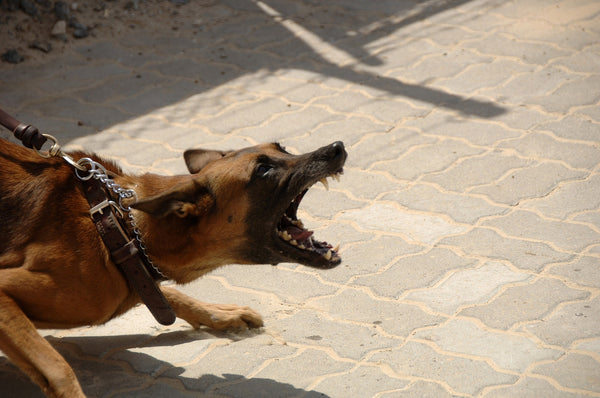Most people throughout the world consider dogs to be "man's best friend." When a dog bites, most people automatically assume that the dog in question is overly aggressive or innately dangerous due to breed, training, or genetics. However, dogs bite for many reasons, and none of them are due to an inherent desire to harm someone.
Dogs Bite out of Fear
Not all dogs are friendly and outgoing; some of this can be due to past abuse, a nervous temperament, or merely a lack of socialization. Whatever the cause, a typically quiet dog can bite out of fear.
People have their personal bubble and do not like to have their space infringed upon, yet many people do not stop to think that dogs feel the same way. One who avoids eye contact or shrinks away from being touched is not a mean dog; he is an afraid dog. To overlook the body language of a dog who is scared is almost to invite a nip.
Dogs Bite to Protect Something
As loyal as people can be to their friends and family, a dog often feels that loyalty to the extreme. For example, a dog who has grown up with a family is very likely to protect his family from any perceived danger. While many view this as a welcome trait, there are occasions when an innocent gesture from a non-family human is seen as a threat. In these circumstances, a dog may attack.
Some dogs are also very food aggressive. Typically these types of canines have been forced to suffer hunger, so when there is food available the dog will do anything to keep the food all to himself. Dogs with food aggressions are not malicious; they are only trying to be sure they get to eat.
Awareness Does Not Equal Permission
Knowing why a dog might bite does not mean a dog owner can abdicate the responsibility for it. Regardless of any precipitating factors, a dog owner may find a summons from a personal injury attorney if he doesn't take proper steps to prevent his dog from biting.
The best thing a dog owner can do to keep his dog-and unwary strangers-safe is to keep the dog in environments where he feels safe. If a dog is uncomfortable in public, a muzzle and leash can allow him to feel safe. Feeding him in an isolated location without anyone around can reduce food aggression.
You can also train your dog to stop biting — or at least bite more gently, depending on the situation.
A dog that bites is not necessarily a bad dog, although s/he will definitely need some additional training. In the meanwhile, by taking steps to prevent their pet from biting, dog owners everywhere can love the dog without worrying about an attack.


